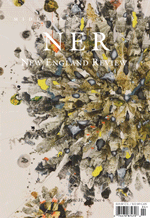 |
 |
Michael Collier
_____
A Tribute to Steve Orlen
January 13, 1942-November 16, 2010
A few days before Steve Orlen passed away, on November 16, a little less than three weeks after having been diagnosed with lung cancer, he told his wife, Gail, that he’d never been happier in his life. He had spent the afternoon in his backyard, stretched out on a bed in full pasha mode, visiting with friends, talking about poetry and art, gossiping, telling stories, and offering up semi-oracular statements. Although he hadn’t eaten for several days, when a friend showed up with a loaf of homemade challah, Steve ate hunks of it slathered with butter and fig jam. I was fortunate to be there, among his friends, and he did seem truly happy. He was also fearless, and the way he faced death inspired and encouraged those who were with him. It’s not surprising that he was happy; friendship was one of the most abiding forces in his life.
I met Steve in 1975 through John Murphy, my closest high school friend from Phoenix, who was taking undergraduate creative writing classes from him at the University of Arizona. Two years later, I entered the M.F.A. program at Arizona, where I spent two important years studying with Steve. Not only did he have tremendous influence on the way I wrote poems, but his generosity and openness as a person were a model of affectionate friendship. He was also wonderfully irreverent and loved letting the air out of pretentious behavior, real or perceived. One of his missions with me was to wear off what he thought was a sheen I had picked up by going to Connecticut College, where I had been a student of William Meredith’s. This is how he chided me about my woeful condition, in a 1976 letter: “Tho you do have some polish & a bit of manners, you’re still just a regular asshole from Phoenix, and your poetry stuff should reflect it.”
In 1999, a few weeks before we were to teach together at Warren Wilson College, Steve sent me a letter in which he described the importance of having “at least one ‘intimate’ friend to pal around with” during the residency, so that “every once in a while” they could “get deeper into friendship.” He offered this as an example of that “deeper friendship”: “One late night, last residency with Tony [Hoagland], and I’m in my chair and he’s sitting cross-legged on my bed in his long johns, on his head, a bright yellow T-shirt tied up to stay put, not like an Arab headdress, but like a—what?—a clown hat, or something. I laughed at him, and he said in his defining, factual, defending, self-laughing way, that bald people lose most of their body heat through their heads. I tell you, I love friendship almost more than anything in life.”
After two intense days of visiting with friends, a number of whom had flown in from around the country—after so much happiness?—his pain worsened, the morphine was increased, but before the undertow of the painkiller carried him away, supposedly he told Gail, “I’m done.” If that’s true, I can hear his voice, probably tired and maybe even resigned, but clear about what was next and comforted by what he had loved almost as much as life.